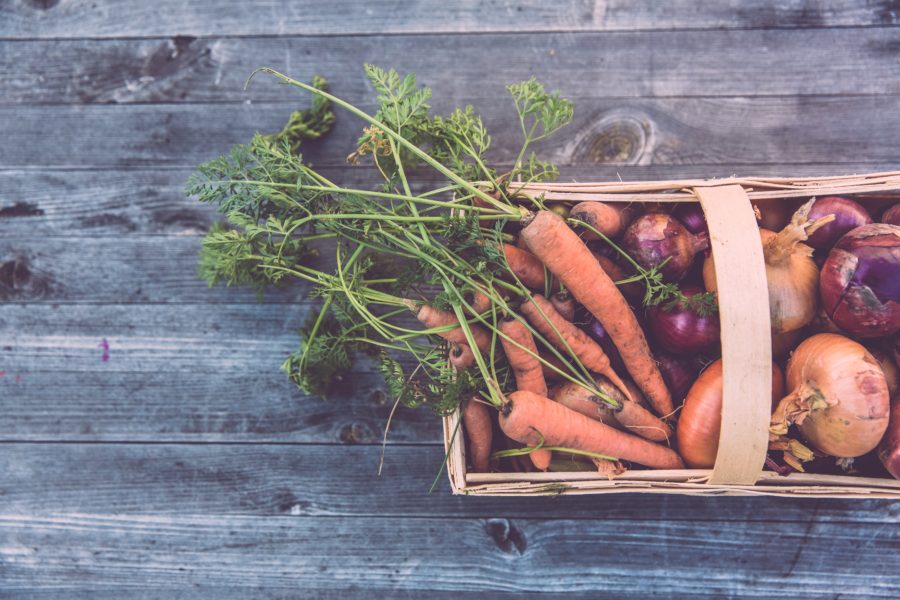Deakin researchers need you to raise your voice and take us one step further towards a healthy, sustainable and equitable food system.
The most recent report from the Intergovernmental Panel on Climate Change (IPCC) has made it clear that transformation is needed in order to avoid the catastrophic impacts of atmospheric warming past 1.5˚C [1].
Food production is one of the largest drivers of global environmental change contributing to this global warming [2]. Furthermore, the foods being produced are contributing to unhealthy diets, which is now the leading cause of death globally [3].
To avoid further diet-related deaths and environmental degradation, the food system – which accounts for the way we produce, choose and consume foods – needs to change.
A time for solutions
The United Nations has called on global experts, advocates, and civil society to advance progress and find solutions to improve the food system.
This process has involved over 20,000 people, and is culminating in a one-day summit event on September 23rd, where we can expect the UN to “launch bold new actions…for global food systems transformation” [4].
To help with this goal, the Institute for Physical Activity and Nutrition at Deakin University arranged for 48 Australian experts to come together, drawing on decades of experience to discuss priorities and actions for food systems change.
Here are their three main recommendations, which have been submitted to the UN and we hope to see adopted on the global stage.
Recommendation 1: Creating a shared vision
To date, researchers and civil society have been predominantly working in silos to evoke change in their own disciplines and regions. This has diluted their ability to influence the system.
We cannot continue to work independently. To make change, Australian experts assert that people from across the world need to have a shared vision of food systems so that solutions can be addressed in a global manner.
The shared vision of a food system needs to encompass health, equity and environmental sustainability. Human rights must be at the centre of this vision, and the voices of farmers, First Nations Peoples, low-income countries and youth need to be prioritised and heard.
This vision should also acknowledge that radical transformation may not be comfortable, and that there will be trade-offs.
Evidence from researchers can be combined with stories from those with lived experiences in nutrition practice, farming or food insecurity to create practical and feasible solutions, build momentum among decision makers and create change.
Policies can then build on this by focusing on systemic and integrated changes, rather than working in silos.
For example, national food system strategies, instead of national nutrition strategies, could better capture the outcomes that are most beneficial for people and the environment.
Recommendation 2: Not everyone will win
Our mainstream food system is currently referred to as a ‘corporatized’ food system [5]. This means that only a handful of companies dominate the majority of production and distribution of foods around the world.
This has resulted in a disproportionate amount of power in the food system lying with large multinational corporations.
Addressing the power relations of the food system is a fundamental component in actioning effective change for healthy, sustainable, and equitable food systems. In the lead up to the UN summit, experts have critiqued the fact that very few of the reports or food system events by multinational organisations or civil society have placed this issue of corporate power front and centre, and thus the status-quo of the food system remains, with little accountability being held by the food industry [6, 7].
Attempts to change the outcomes of the food system without addressing power has led to ineffective policy actions being implemented across the world.
For example, the involvement of industry in decision-making processes has resulted in watered-down policy schemes like voluntary front-of-pack labelling such as the Health Star Rating in Australia or Nutri-Score in Europe.
Policy actions that are cohesive and work across sectors, aligning broader food system considerations like ecology and sustainability, could be key in overcoming some of these pitfalls. But ultimately, necessary system changes may contradict the financial goals of large multinational food corporations.
This may result in more regulation of corporate activity, or incentive structures to facilitate better practices.
Either way, these contradictions are unavoidable and vital to achieve a food system that is environmentally sustainable and provides healthy foods to all people – working for all.
Recommendation 3: Harnessing power from global organisations is key
Food production is global and the companies producing vast quantities of our food have holdings in multiple countries, institutional relationships with governments, and more financial power than some countries.
As a result, it’s unlikely that food regulatory systems, which operate independently in each country, will be able to tackle health and environmental issues by focusing on changes in their own country alone. Instead, we need collective action from across the globe.
Utilising global organisations and their human rights focused mandates to harness power away from the food industry may be a way forward, so that governments and advocates for sustainability and health are better united. This includes the voices of the public who demand that their rights are put before profits of large corporations.
Experts noted that the United Nations is uniquely positioned to help national governments to unify and address systemic and urgent problems. Outcomes from the summit could be the first step towards a collective food regulation programme.
However, improvements need to be made to the current methods of collecting information and uniting agendas. The UN Food Systems Summit has received substantial criticism for providing a platform to industry and insufficiently raising the voices of less powerful civil society groups [6, 7].
In order to move forward, these issues need to be addressed, rather than swept under the carpet.
What’s next?
On the 23rd of September, the United Nations has a unique opportunity to set measurable food-related actions that will help achieve the Sustainable Development Goals. Policy makers, scientists and advocates in the summit need to ensure that their voices are raised loudly to counter that of industry.
We also need you to raise your voice and speak loudly about the importance of food systems that value people and the planet over profit.
You can contribute to the summit by signing up to be a Food Hero, virtually attending the one-day event on September 23rd and sharing your voice on social media using the tags #GoodFood4All #ActNow and #UNFSS2021.
Ensuring that your voice is heard takes us one step further towards a healthy, sustainable and equitable food system.
Discover the findings from Deakin’s Institute for Physical Activity and Nutrition researchers.
Authors: Kim Anastasiou (1), Kate Sievert (1), Cherie Russell (1) and Dr. Rebecca Lindberg (2)
(1) School of Exercise and Nutrition Science, Deakin University
(2) Institute of Physical Activity and Nutrition, Deakin University
References
- 1. IPCC, Headline Statements from the Summary for Policymakers. 2021, IPCC.
- 2. Tilman, D. and M. Clark, Global diets link environmental sustainability and human health. Nature, 2014. 515(7528): p. 518-522.
- 3. Afshin, A., et al., Health effects of dietary risks in 195 countries, 1990–2017: a systematic analysis for the Global Burden of Disease Study 2017. The Lancet, 2019. 393(10184): p. 1958-1972.
- 4. United Nations. Summit Vision. 2020; Available from: https://www.un.org/en/food-systems-summit/vision-principles.
- 5. McMichael, P., Global Development and The Corporate Food Regime, in New Directions in the Sociology of Global Development, F.H. Buttel and P. McMichael, Editors. 2005, Emerald Group Publishing Limited. p. 265-299.
- 6. Covic, N., et al., All hat and no cattle: Accountability following the UN food systems summit. Global Food Security, 2021. 30: p. 100569.
- 7. Special Rapporteur on the right to food., Last chance to make the Food Systems Summit truly a “people’s summit”. 2021, United Nations Human Rights Special Procedures: Geneva, Switzerland.



